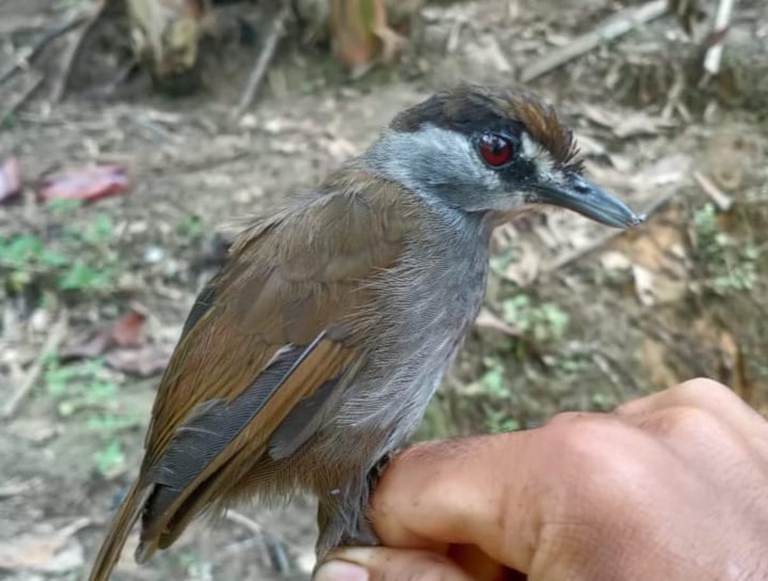
A report by Ember explains that in 2025 electricity generation from renewables (solar, wind and hydropower) surpassed that from fossil fuel sources.
A “breathtaking” discovery has been made in Borneo with the sighting of a black-browed Akalat, an endemic bird species, for the first time in 172 years.
“It is breathtaking to think that it is not extinct”. This is how Indonesian ornithologist Panji Gusti Akbar responded to the sighting in Borneo of a black-browed Akalat (Malacocincla perspicillata).
This small, shy passerine was last sighted in 1848 – the year when it was first described. Finally, however, what has often been defined as Indonesian ornithology’s most mysterious enigma has perhaps been solved. An Akalat specimen was observed in a forest in Kalimantan, on the island of Borneo in Southeast Asia. This news was revealed by Global Wildlife Conservation, an NGO working to protect wildlife and their habitats.
Confirmation of the discovery arrived after ornithologists examined photographs taken by two Kalimantan locals in October 2020. Naturally, the news has rekindled scientists’ hopes by showing that there’s still time for us to save a precious animal like the Akalat. The species is threatened by deforestation – caused mainly by the creation of palm oil and rubber tree plantations – and drought, which often leads to devastating wildfires.
Furthermore, Barney Long of Global Wildlife Conservation adds that “finds like these are incredible and make us believe that it is possible to trace other species that have been scientifically lost for decades or more”. This discovery shows us how nature can be more resilient than we think, and that we should never give up the fight to protect and conserve it.
Siamo anche su WhatsApp. Segui il canale ufficiale LifeGate per restare aggiornata, aggiornato sulle ultime notizie e sulle nostre attività.
![]()
Quest'opera è distribuita con Licenza Creative Commons Attribuzione - Non commerciale - Non opere derivate 4.0 Internazionale.
A report by Ember explains that in 2025 electricity generation from renewables (solar, wind and hydropower) surpassed that from fossil fuel sources.
The Tyler Prize, considered the “Nobel Prize for the Environment,” has been awarded to Toby Kiers, an American biologist working in Amsterdam.
Belgium is one of the countries most exposed to climate change. Dune–dikes are a solution to curb sea-level rise.
Between October 2024 and September 2025, the average temperature in the Arctic was 1.6 degrees Celsius higher than during the 1991–2020 period.
Undeclared conflicts of interest, paid authors, lack of transparency: one of the most cited studies on glyphosate, published in 2000, has been retracted.
The Copernicus service has released data for the first eleven months of 2025: global warming is set to come close to last year’s record.
The European Council and Parliament have reached an agreement on the European Commission’s proposal to deregulate new GMOs. But farming, organic agriculture, and environmental organizations are calling for it to be stopped.
The world’s second-largest producer has taken a historic decision. However, farms will have until 2034 to shut down.
A Greenpeace report denounces Russia’s political and economic model: a nexus of extractivism, authoritarianism and war that is destroying the environment, with serious repercussions for the global ecosystem.








